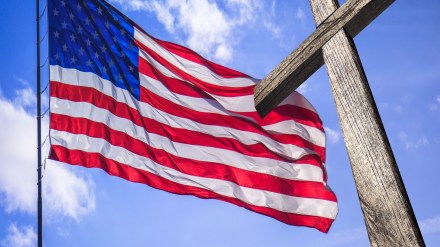South Dakota and Montana have joined the ranks of 22 other states now legally requiring their governments to meet higher judicial standards for justifying laws or activities that substantially burden the religious exercise rights of individuals, churches, and organizations.
South Dakota passed its “Act to provide protections for the exercise of religious freedom” in March of 2021. The “Montana Religious Freedom Restoration Act” became law a month later.
The states were the first to pass such statutes since 2015, when Indiana and Arkansas did so. While one state—Virginia—has had such a law on the books since 1786, the remaining states passed theirs after a key, controversial 1990 ruling by the US Supreme Court.
That ruling—Employment Division v. Smith—established a lower judicial standard for reviewing neutral, generally applicable laws, even when those laws substantially burden religious exercise.
Such an outcome affords greater protections for government activities, making it less likely a legal challenge brought by an individual, church, or organization could succeed.
How religious freedom laws developed
The Smith decision prompted the US Congress to pass—nearly unanimously—the federal Religious Freedom Restoration Act (RFRA) in 1993. RFRA says a law or government activity shown to substantially burden an individual, church, or organization must advance a compelling government interest in the least-restrictive way possible. That constitutes a higher standard, making it more likely the law or activity will get struck down.
Four years later, the Supreme Court struck down the federal RFRA, and courts have subsequently ruled it applies only to federal government actions. This triggered some states to respond with their own RFRAs addressing state-level actions and activities. South Dakota and Montana’s laws mostly mirror the language used in the federal RFRA as well as those of most other states.
Pandemic challenges prompt additional protections by South Dakota
South Dakota went two steps further, though, likely in response to religious liberty clashes witnessed nationwide throughout the COVID-19 pandemic. South Dakota’s law forbids its government leaders from treating “religious conduct more restrictively than any secular conduct of reasonably comparable risk,” or treating “religious conduct more restrictively than comparable secular conduct because of alleged economic need or benefit.”
Religious liberty advocates have contended pandemic-related restrictions and executive orders issued by governors have unevenly treated religious groups compared to similarly situated secular entities. Lawsuits filed by churches have led to varying conclusions by federal courts. The Supreme Court has consistently decided that any restrictions imposed on churches violates the First Amendment unless those restrictions also are uniformly applied to similar secular businesses and organizations.
Less than half of the country’s states have RFRAs on the books, but at least five states have high-level state court decisions using the compelling government interest/least restrictive means standard for determining the constitutionality of their respective governments’ actions.
To date, 14 states offer no RFRA or similar protections, whether through a law or a court decision.
Looming uncertainty for the federal RFRA
H.R. 5, better known as “The Equality Act,” was passed along party lines by the US House of Representatives in February of 2021. It is now under consideration with the US Senate.
As it is currently written, the Act would expand antidiscrimination protections found under Title VII of the Civil Rights Act of 1964 to the lesbian, gay, bisexual, transgender, and queer (LGBTQ) communities.
The Equality Act also would explicitly prohibit use of the federal RFRA as a defense to discrimination claims. Houses of worship would still have use of the “ministerial exception” when making employment decisions tied to ministerial roles. However, it remains uncertain how houses of worship would be able to handle employment decisions about non-ministerial positions in the event The Equality Act passed.
Learn more about religious freedom protections available to churches and ministries through Church Law & Tax’s 50-State Religious Freedom Laws Report, a downloadable resource by Matthew Branaugh, attorney and content editor, and Richard Hammar, attorney and senior editor.




